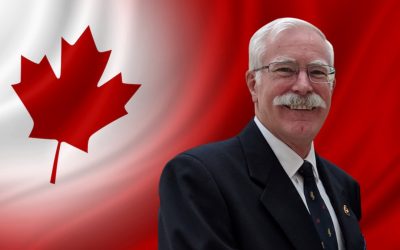As the Templeton Freedom Awards enter their third year, the innovative program is yielding dividends far greater than just rewarding effective work by think tanks worldwide. Winners and program administrators alike speak of strategically leveraging the Awards’ impact, especially in the developing world.
From India, a 2005 award recipient talks of sparking debate among intellectuals in the world’s second most populous country. In Israel, a think tank is turning its winnings over to fund a student film that will help spread a pro-market message. From Montenegro, an activist in bureaucratic reform talks of leveraging his prize money to help local journalists digest difficult economic concepts.
By world standards, the grants and prizes are not large — ranging from $5,000 to $10,000 — and so often escape mention in the U.S. press. But in their home countries, recipients report garnering prestige and attention for their pioneering work.
“This award not only established the credentials of IDE-India’s market-based approach to poverty reduction, but opens a debate among political and academic circles in India,” says Amitabha Sadangi, the chief executive officer of the non-profit International Development Enterprises (India). Sadangi’s organization, founded in 1991, last year won a $10,000 Templeton Freedom Prize for Social Entrepreneurship for a program that provides poor, rural families with new irrigation systems.
Aside from Social Entrepreneurship prizes that go to NGOs encouraging private, voluntary solutions to social problems, the Templeton Freedom Prizes are also awarded in the following categories:
- The Templeton Freedom Prize for Ethics and Values honors non-profit research institutes that study the symbiotic relationship between free enterprise and enlightened systems of ethics and values.
- The Templeton Freedom Prize for Free Market Solutions to Poverty celebrates non-profit institutes that research and promote the use of free enterprise, sound legal institutions and entrepreneurship to combat poverty.
- The Templeton Freedom Prize for Student Outreach rewards think tanks with ground-breaking projects that help students better understand the causes and consequences of individual freedom.
In addition, Templeton Freedom Award Grants for Institute Excellence go annually to ten innovative, relatively new think tanks that are doing especially effective work in their home countries. This year, for example, Bulgaria’s Institute for Market Economics received an Award Grant for the comprehensive review it conducts of proposed legislation and regulation in its ‘Economic Policy Review’ newsletter.
The Atlas Economic Research Foundation, in Arlington, Virginia, administers the Freedom Awards for the John Templeton Foundation. “The Templeton Freedom Awards program is faithful to Sir John’s style of investing globally and discovering new opportunities,” says Atlas president Alejandro Chafuen, whose foundation has been working with think tanks internationally since 1981.
While think tanks representing a broad spectrum of thought have been a staple of the post World War II political landscape in the United States, that’s not true elsewhere, especially in the former Communist states of Eastern Europe and Asia. In places like Ukraine, reformers came to power in 2004 in part because of think tanks’ ability to inform debate and shape public opinion. But, in the course of Ukraine’s Orange Revolution, think tanks were also highly controversial, especially those funded from Washington and Moscow. A few months later, the same scenario played itself out in the former Soviet Central Asian republic of Kyrgyzstan with the so-called Tulip Revolution.
This is a point not lost on Atlas as it hands out the Freedom Awards: “The world is far richer when indigenous think tanks take up this task in their own countries, as compared to when outsiders try to impose their own ideas and expectations. Atlas plays a supportive role while respecting the independence of each think tank,” says Chafuen.
Grassroots, local organizations, of course, are almost always staffed by local people who bring a passion to local issues that outsiders can rarely muster. In China, Kate Zhou, the founder of the Education Advancement Fund International, speaks of the personal experience that inspires and drives her work. “I have survived the Great Leap Famine and the Cultural Revolution. I saw my grandfather starved to death and my own mother tortured,” says Zhou, a Freedom Award winner. “As a young woman in Mao’s China, I witnessed first-hand not only the viciousness and cruelty of repression and prejudice caused by the Chinese Communist regime, but also the inherent and blatant lack of personal liberties.”
The Freedom Awards, while providing some material support for winners’ operations, are even more effective forms of financial assistance by priming the pump for contributors. For example, after receiving a Freedom Award in 2004, New Delhi’s Centre for Civil Society garnered $100,000 from Kanwal Rekhi, an Indian-American engineer and entrepreneur who made a fortune in Silicon Valley. Rekhi also signed on as a trustee for the Centre.
Other, more recent winners can only hope for the same. “We are very pleased that our efforts have met with recognition from such a prestigious source,” says Peter Holle, head of the Winnipeg, Canada-based Frontier Centre for Public Policy, in reaction to winning a 2006 Award Grant for Institute Excellence. “As many of us know, this is probably the toughest ground for new thinking in Canada. The vast economic potential of Canada’s eastern Prairie region is hobbled by dated policy models, and our intellectual missionary work fills an obvious void.”
In the former Yugoslav republic of Montenegro, the Templeton Freedom Awards are helping drive and shape economic reforms at a crucial time when the region is asserting its independence from dominant Serbia. In the Montenegrin capital of Podgorica, the Center for Entrepreneurship and Economic Development has won three Templeton Freedom Awards – a total of $25,000 in prize money. “Every time we are getting something extra, we are investing it in extending our work, in our own advocacy activities,” says Dr. Petar Ivanovic, executive director of the center. “For us, every single dollar has a special value.”
The Center for Entrepreneurship and Economic Development’s prizes were for effective public relations work, general institutional excellence and encouraging free enterprise, specifically for reducing bureaucratic impediments to business startups. According to Dr. Ivanovic, his independent think tank’s crowning achievement was to push the Montenegrin government to drastically streamline procedures for registering new businesses. “One of the things we are most proud of is a new law that we helped create. Now, it takes only four days to register a new business with the government. And, you are required to only have one Euro in startup capital,” says Ivanovic, noting that the process previously required thousands of dollars and several months of bureaucratic hurdles.
Ivanovic speaks with pride about the staying power of his organization, founded in 1993 as Yugoslavia disintegrated in bloody conflict, and its ability to shape economic policy through a succession of governments and regional crises. That, says Atlas’ Chafuen, is exactly the point.
“What counts is not only the new income and attention that these NGO’s might attract, but the increased stability and credibility of their organizations. Something that we have learned over decades of experience in public policy reform is the importance of persistence,” Chafuen says.
On a purely human level, the Freedom Award gives recipients a feeling of connectedness and encouragement.
“To be at the bottom of the world geographically and yet through networks feel like we’re in the centre of a global renaissance is liquid fuel to the tank,” says New Zealander Greg Fleming, a winner in 2005 of the Templeton Freedom Awards Prize in Social Entrepreneurship.
Links of Interest
For more information on the Templeton Freedom Awards please go to:
www.atlasusa.org/programs/tfa

